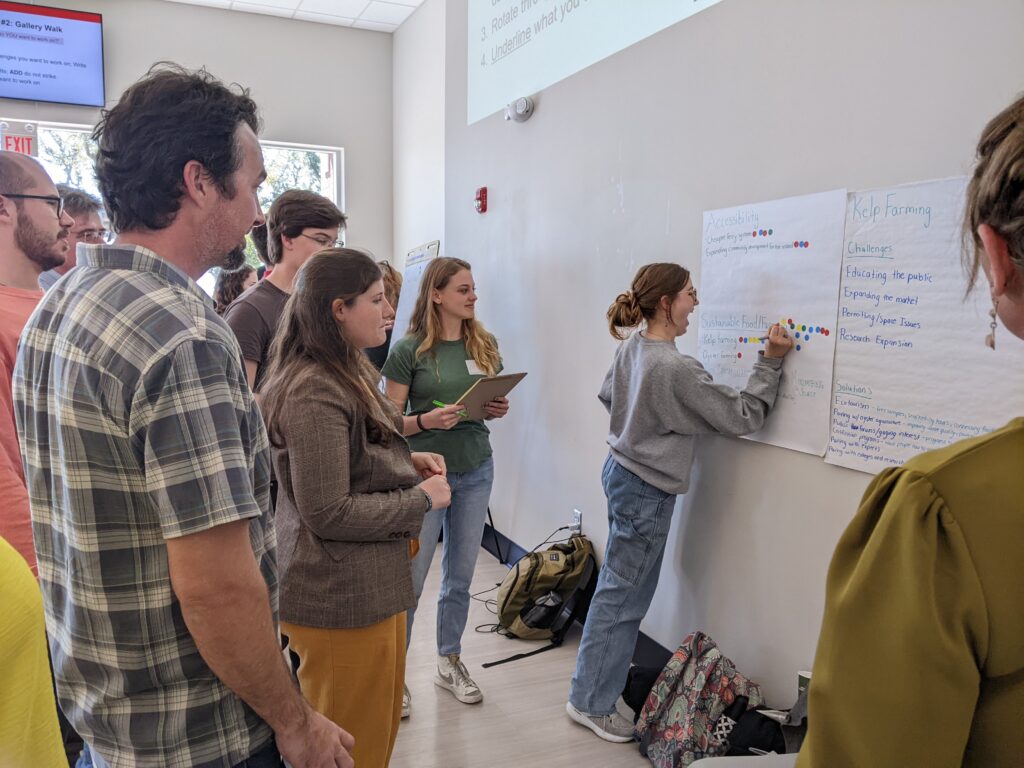A New Wave of Innovation
The blue economy in North Carolina is a dynamic sector integrating economic activities with the preservation of coastal and marine ecosystems. NC State’s Blue Economy Innovation Program (BEIP) exemplifies this integration by fostering a collaborative network that supports sustainable practices and innovative solutions to the grand challenges that the coastal environment and economy faces. Through its partnerships with local universities and communities, the BEIP aims to address environmental challenges while promoting economic growth.
NC State’s Social Innovation and Entrepreneurship program plays a crucial role within this framework by driving new approaches to sustainability and community development. These initiatives focus on creating impactful solutions that balance economic needs with environmental supervision. As noted in the report by The Nature Conservancy, “Achieving a sustainable future will be dependent on our ability to secure both thriving human communities and abundant and healthy natural ecosystems.”
Partnerships are central to the success of the blue economy, as they unite various stakeholders—government agencies, businesses, and non-profits—to work towards common goals. For example, the collaboration between Plastic Ocean Project, the NC Coastal Federation and the NC Aquarium at Jennette’s Pier has led to the creation of the Ocean Friendly Establishment program, which encourages businesses to reduce single-use plastics.
The report highlights significant achievements and ongoing efforts in the blue economy, such as the successful expansion of Wrightsville Beach through a beach renourishment project and the development of aquaculture initiatives that support sustainable seafood production. These efforts underscore the commitment to fostering a resilient and thriving coastal economy.

If you are a student who would like to learn more about the blue economy, consider enrolling in MEA 493/591: Interdisciplinary Innovation in the Blue Economy this fall. Open to both undergraduate and graduate students across all majors, this course builds on the yearly, free workshop experience, has no prerequisites and may be used as an advised elective in some disciplines (check with your advisor).
The work being done at NC State, UNC-Wilmington and other focus groups represents a unified, collaborative approach to integrating economic development with environmental sustainability. Through innovative programs, social entrepreneurship and effective partnerships North Carolina is paving the way for a balanced and resilient future.
This post was originally published in Entrepreneurship News.